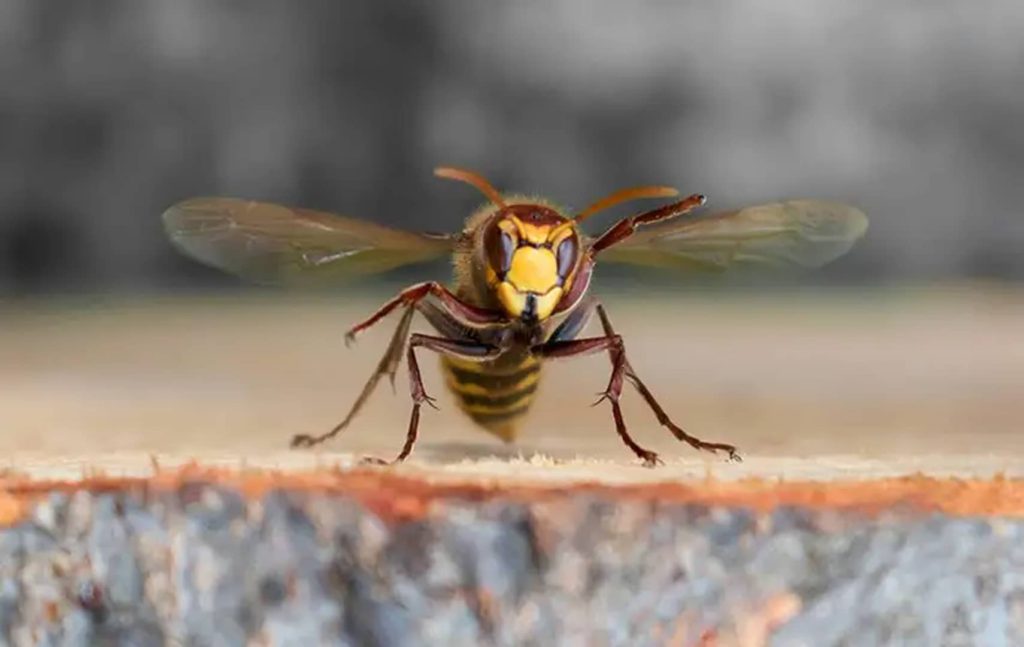
What Are Stinging Insects?
If stinging insects are buzzing around your Jacksonville, Florida area yard, they are like one of the following species:
- Africanized honey bees
- Hornets
- Yellowjackets
- Wasps
Though they are all different species, they have two things in common. First, they have stingers extending from their hind end used to inject venom to paralyze prey and as a means of defense. Second, when nesting in your yard, they turn your outdoor space from a haven into a place you can’t enjoy.
Need To Get Rid of Stinging Insects?
Are Stinging Insects Dangerous?
Whether a specific species of stinging insect is aggressive or not, the truth is that any species can be dangerous. Stinging insect venom is strong enough to affect a person; how severely depends on a person’s reaction to the venom. Some people show no signs of a reaction except minimal swelling around the sting site. In contrast, others may experience a whole-body reaction, and others may go into life-threatening anaphylactic shock.
Having stinging insects on your property is problematic, and you need to remove them. Removing them from our properties is not because we don’t appreciate them and their importance to the ecosystem, but because of the threats they bring with them.
Why Do I Have a Stinging Insect Problem?
Stinging insects are regularly in our yards because there they find the resources they need. Our yards offer stinging insects access to nesting materials, areas to safely build their nests, and places to hunt for food.
Our gardens, landscaping plants, trees, trash cans, and outdoor eating areas provide stinging insects and the insects they feed on with food sources. The more flowering vegetation and insects you have on your property, the more it will attract stinging insects.
Where Will I Find Stinging Insects?
There are multiple areas on our properties where stinging insects could build their nests. Along with food, safe nesting sites are the largest attractant to our Florida properties. Stinging insects like to place their nests in out-of-the-way spaces that protect the nest and members of the hive from predators and harsh weather conditions like heavy rain.
In our yards, stinging insects build nests in the abandoned nests of other animals, within trees or shrubs, on the exterior of our homes, and under structures like decks or porch steps. They also sometimes nest within wall voids and chimneys.
How Do I Get Rid of Stinging Insects?
Remove stinging insects and their nests from your Jacksonville, Florida area yard or home with the help of the local professionals at Trad’s Pest Control. We provide our customers with effective and hassle-free support through our free inspections and premier pest control services.
At Trad’s Pest Control, our highly trained pest control professionals will provide the effective treatments necessary to rid your property of dangerous stinging insects and guard your family against their painful stings. Learn more about our comprehensive home pest control and commercial pest control offerings by speaking with one of our helpful and caring professionals today!
Let Us Help You Get Rid of Stinging Insects
How Can I Prevent Stinging Insects In The Future?
To help deter stinging insects and feel safe in your outdoor space, we want to provide you with the following stinging insect prevention strategies:
- If you spot a stinging insect nest on your property, avoid the area until you have a professional remove the nest.
- Regularly inspect your yard for ground holes and fill in any holes you discover to prevent stinging insects from using them as nesting sites.
- Cut back tree limbs and overgrown shrubbery from your house.
- Remove things like brush piles, fallen trees, and woodpiles from your property where stinging insects can construct a nest.
- Place gardens away from your home’s exterior and avoid planting flowering plants right near your home’s entrances.
- Always keep lids on trash cans, recycling bins, and compost bins.
- Makes sure screens in windows and doors are intact and seal openings in exterior walls to keep stinging insects out of your house.
